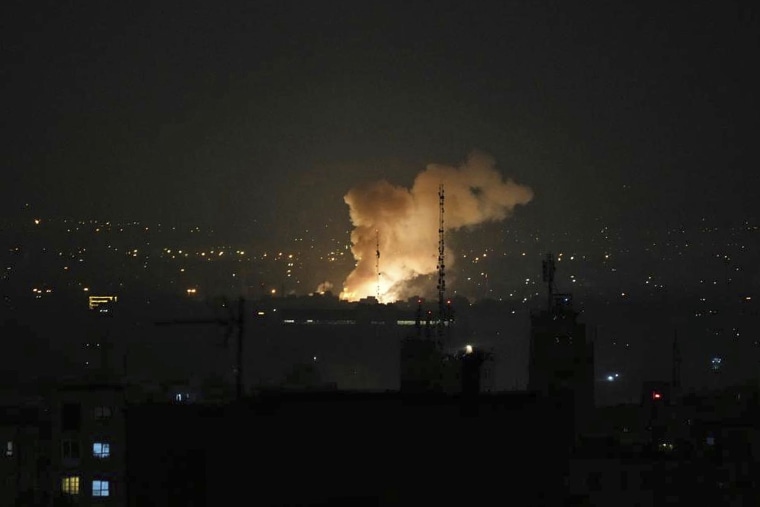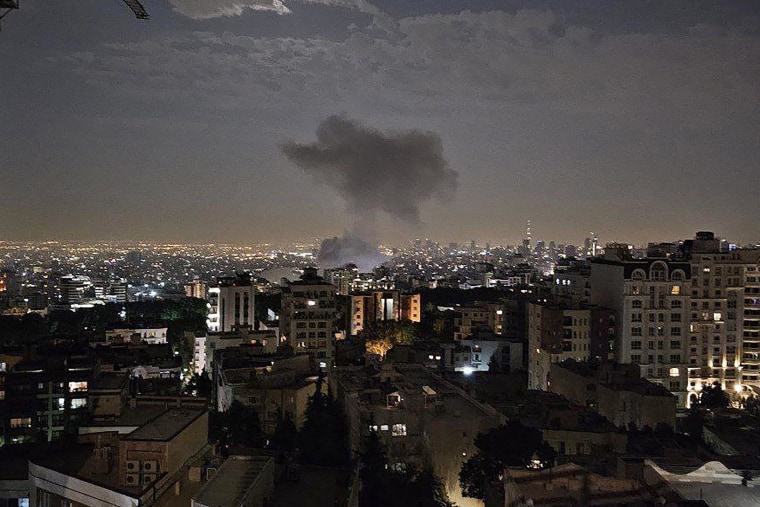Israel launched widespread air strikes targeting Iran's nuclear program and ballistic missile sites, killing key military officials. This significant escalation sparked a surge in oil prices, market volatility, and heightened concerns about regional conflict.
The Israeli Strikes and Their Impact

Israel conducted multiple waves of air strikes against Iran's nuclear facilities, including the Natanz enrichment site, and ballistic missile programs. The attacks also targeted high-ranking Iranian military officials, including the head of the Islamic Revolutionary Guard Corps (IRGC).
Prime Minister Benjamin Netanyahu declared the strikes a preemptive measure to prevent Iran from developing nuclear weapons, stating that Israel would continue the offensive until the threat was eliminated. The Israeli military reported repelling over 100 Iranian drones launched in retaliation.
Iran's Response and International Reaction

Iran vowed a "harsh blow" against Israel and the US in response to the attacks. Iranian state television reported casualties, including the death of IRGC commander Hussein Salami and the chief of staff of the armed forces. Explosions were reported across Iran, notably in Natanz.
US Secretary of State Marco Rubio confirmed US awareness of the strikes but denied involvement. He warned Iran against targeting US interests. President Trump, while previously expressing opposition to an Israeli attack, reportedly knew of the plan beforehand.
International reactions were mixed. Some countries expressed concern and urged de-escalation, while others remained largely silent. The UK Prime Minister called for restraint and a return to diplomacy.
Market Turmoil and Economic Fallout

The attacks sent shockwaves through global markets. Oil prices surged by as much as 13%, marking the biggest intraday gain in over three years. This reflects investor fears of a wider Middle East conflict and potential disruptions to oil supplies.
Equities fell sharply in Asia, with futures for Europe and the US also declining significantly. Investors rushed to safe haven assets, boosting the US dollar and gold prices to near-record highs.
The Israeli shekel experienced a significant drop against the US dollar, reflecting the immediate economic impact of the escalating conflict.
Analysis and Expert Opinions

Experts are divided on the implications of the Israeli strikes. Some analysts believe the attacks increase the likelihood of Iranian retaliation and accelerate Iran's pursuit of nuclear weapons. Others point to Israel's strong air defense system and suggest that while the conflict is dangerous, it will likely remain localized.
Professor Matthew Bunn, a nuclear policy analyst at Harvard, expressed concern that the attack might push Iran to rebuild its nuclear program in secret locations. Nicole Graiki, a fellow at the Carnegie Endowment for International Peace, described the situation as close to a worst-case scenario.
Retired General Wesley Clark suggested that Israel's action might have forced the US’s hand, putting pressure on President Trump to respond to the escalating threat.
The Air India Crash and its Aftermath

In other news, one of the black boxes from the fatal Air India plane crash in Ahmedabad has been recovered. The investigation is underway to determine the cause of the crash, which claimed the lives of 241 passengers. Boeing's CEO and head of commercial aircraft canceled their plans to attend the Paris Air Show following the incident.
Uncertain Future and Calls for Diplomacy

The situation remains highly volatile. The potential for further escalation, including Iranian retaliation and the involvement of other regional actors, is a major concern. The possibility of further attacks, whether by drones, missiles or other means, remains a major worry for international observers.
While the immediate aftermath is dominated by military actions, the international community is working to find a diplomatic solution. The urgent need for restraint and a return to dialogue is paramount. The long-term consequences for regional stability and the global economy remain uncertain.
Looking Ahead

The Israeli attack on Iran represents a profound shift in the Middle East. The immediate consequences are clear – rising oil prices, market volatility, and heightened regional tensions. However, the long-term repercussions remain to be seen. The international community's response, as well as the actions of Iran and other regional actors, will determine the future trajectory of this unfolding crisis. The urgent need for de-escalation and a return to diplomatic efforts cannot be overstated.